Stomach and digestive problems are common, from bloating and constipation to diarrhea.
According to the CSIRO, at least 50% of Australian adults experience unpleasant gut symptoms such as bloating, gas and constipation, and 1 in 7 experience distressing symptoms. These conditions are associated with poor gut health, including irritable bowel syndrome (IBS), Gastroesophageal Reflux Disease (GERD), and Inflammatory Bowel Disease (IBD).
Manuka honey may benefit your gut health and help ease some issues related to your digestive system.
What is gut health?
There is no specific definition of gut health, but it refers to the health and functioning of the stomach, intestines and the colon—also known as the gastrointestinal tract. Your gut is responsible for many processes, such as digestion and absorption of nutrients and the elimination of waste. It also includes the community of microorganisms that live in your gut, known as gut microbiomes with nearly 200 different species of bacteria, fungi and viruses.
While some gut microbes are harmful to us, many are beneficial for our health, with research suggesting that probiotics (beneficial bacteria) can positively impact health. Research also shows that maintaining a diverse and balanced gut microbiome through diet and lifestyle choices may be crucial for overall health and disease prevention.
Inflammation and the risk of disease, metabolic conditions like obesity and diabetes, mental health disorders, autoimmune disease, and other chronic conditions like cardiovascular disease are all linked to the imbalance of healthy and unhealthy gut microbes.
Manuka honey and gut health
Manuka honey can support good gut health in several ways:
Prebiotic
Honey, particularly Manuka honey, can promote the growth of beneficial gut bacteria, thus having a prebiotic effect. Manuka contains non-digestible carbohydrates known as oligosaccharides, which act as a food source for good bacteria. Studies show that Manuka can increase the growth of good bacteria, such as Lactobacillus reuteri, L. rhamnosus, and Bifidobacterium lactis.
Antimicrobial
Manuka honey has strong antimicrobial properties, thanks to the elevated levels of methylglyoxal (MGO) which is highly effective against harmful pathogens. Studies show that it can inhibit harmful bacteria, such as Salmonella, E.coli, and Clostridium difficile (a major cause of severe diarrhea), thus enabling the growth of good bacteria in the gut. It is particularly effective against H.pylori, which causes stomach ulcers and gastritis.
Anti-inflammatory
The phenols and bioactive compounds in Manuka honey offer anti-inflammatory properties that may reduce inflammation in the digestive tract, thus contributing to gut health. This could be beneficial for inflammatory conditions like IBS and IBD, including Crohn’s disease and ulcerative colitis. However, more conclusive human studies are needed.
Manuka honey’s anti-inflammatory properties combined with its anti-bacterial actions may also provide relief from gastritis, which is caused by inflammation of the stomach lining.
Wound-healing
Manuka honey is known for its exceptional wound-healing properties and the ability to repair damaged tissue, especially in chronic wounds. These properties can also support gut health. A 2016 animal study demonstrated the honey’s ability to heal gastric ulcer lesions and protect the stomach’s lining. However, more extensive human studies are needed to confirm this conclusively.
Antioxidant
Studies show a link between oxygen-free radicals and the occurrence of acid reflux. Manuka honey is a powerful free radical scavenger and fights free radicals, thus reducing or preventing cell damage in the digestive tract. It can also promote the regrowth of tissues in the digestive tract and reduce the chances of acid reflux.
How to consume Manuka for gut health
It’s important to know that while these results sound promising, more studies are needed to understand the full effect of Manuka’s role in your gut health. It is also advisable to consult with a healthcare professional before taking any honey, especially if you have any chronic conditions.
For digestive benefits, you can consume 1 to 2 tablespoons of Manuka honey each day, which is a common daily dose in some studies. In the 2022 pilot human clinical study, participants consumed a daily dose of 20 grams of honey.
It’s important to note that Manuka honey with a higher MGO (methylglyoxal) rating is considered better for you, such as honey that is graded MGO 260+ and higher.
If you are looking for high-quality premium Manuka honey for your gut health, you can find a range of Manuka honey products in our online store. Visit today!



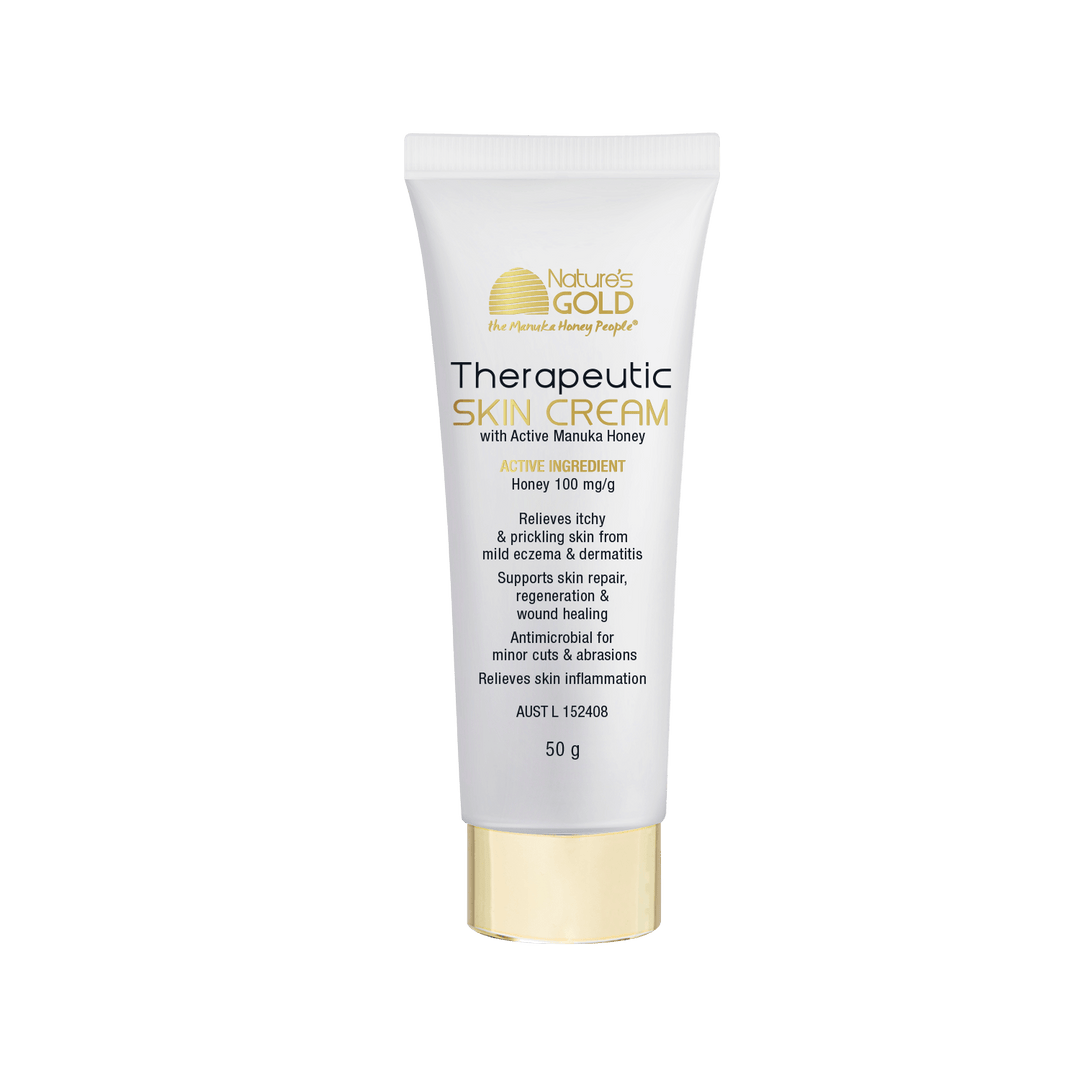
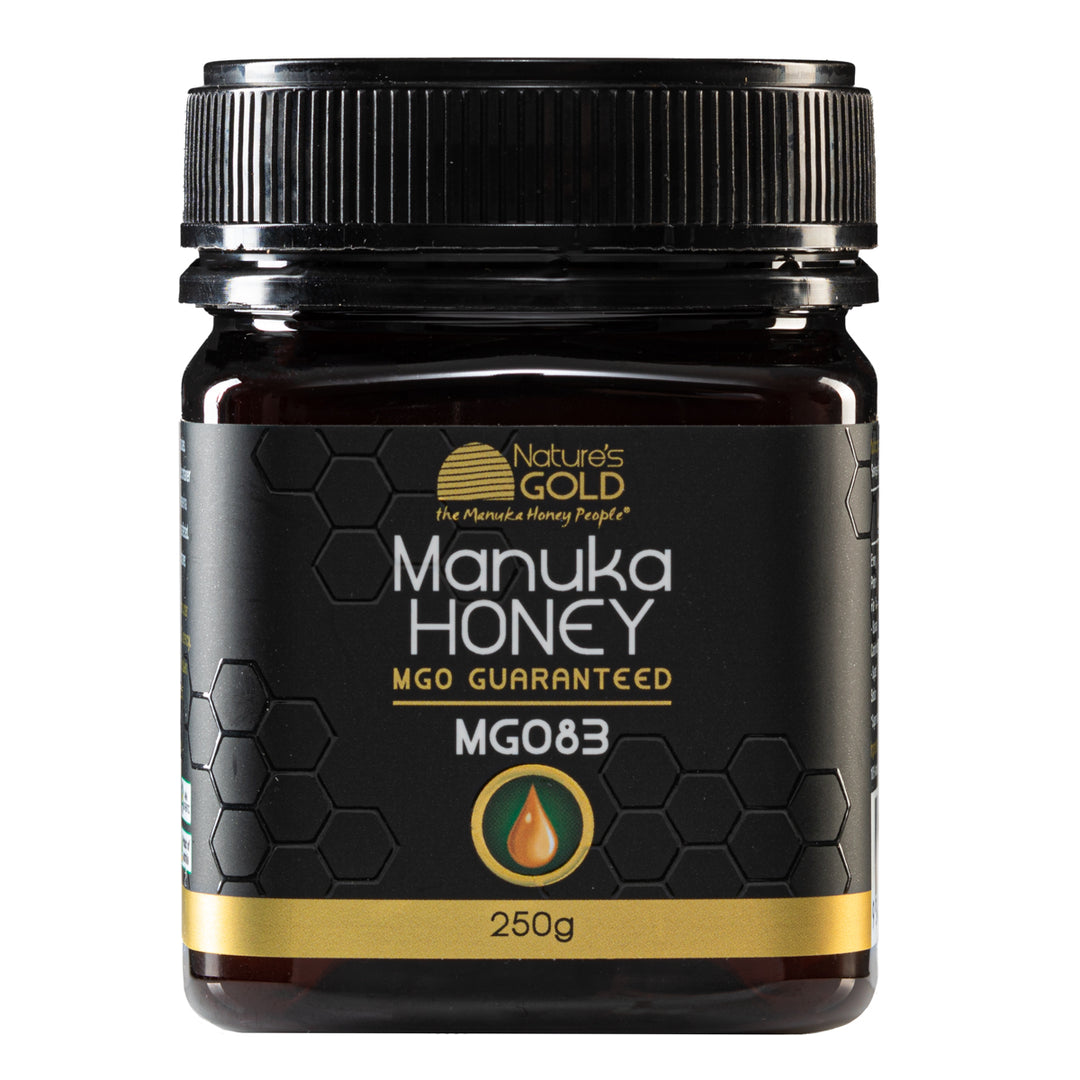
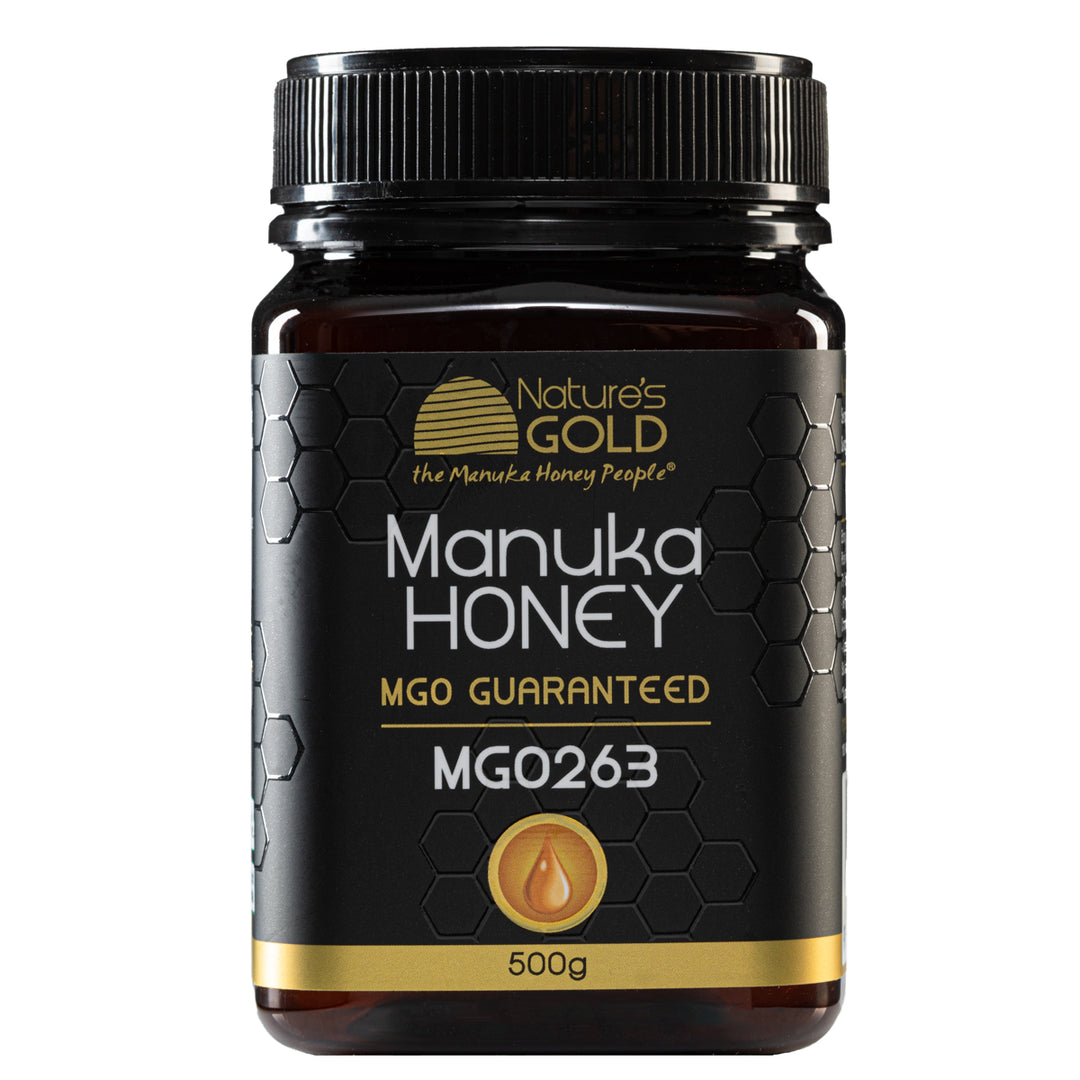
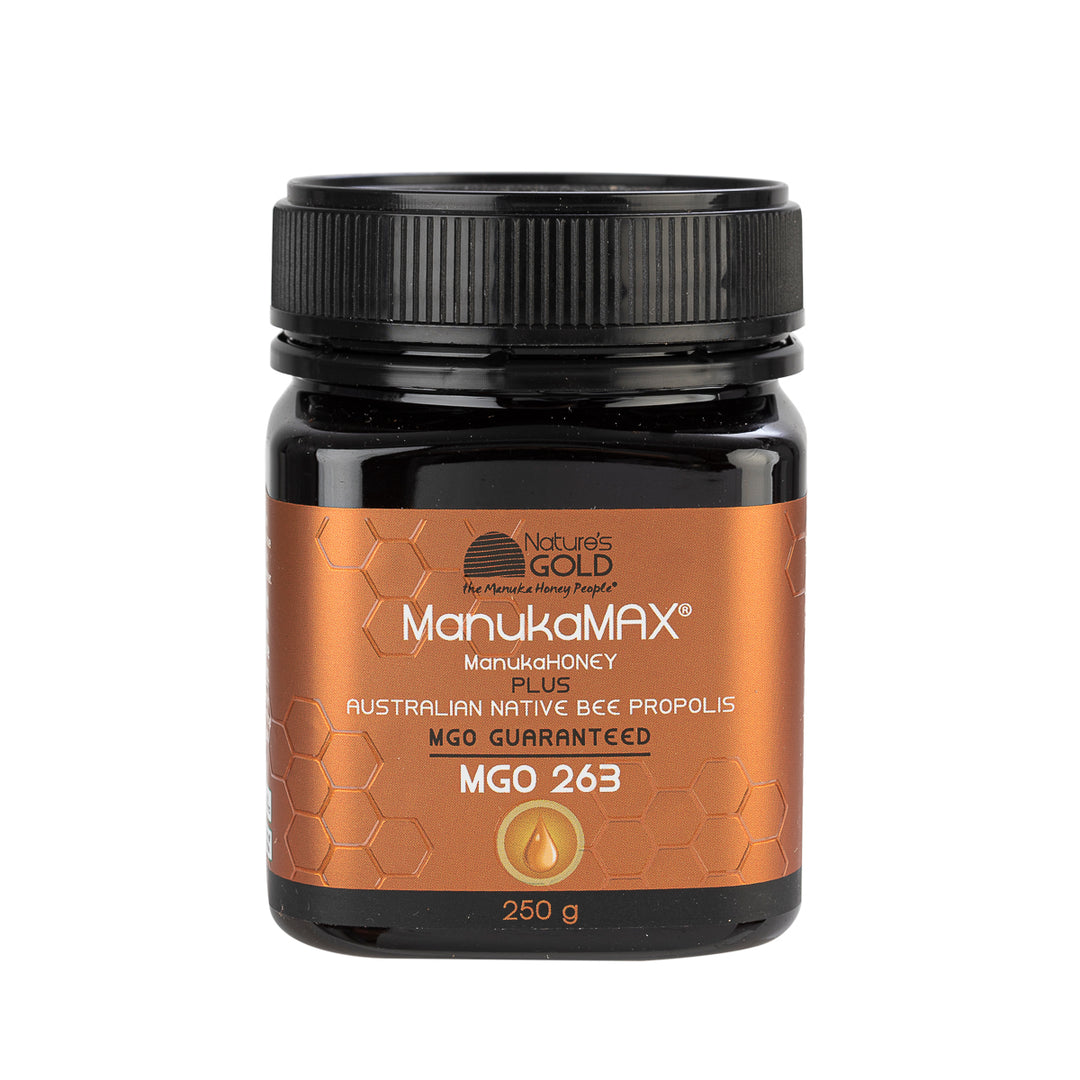
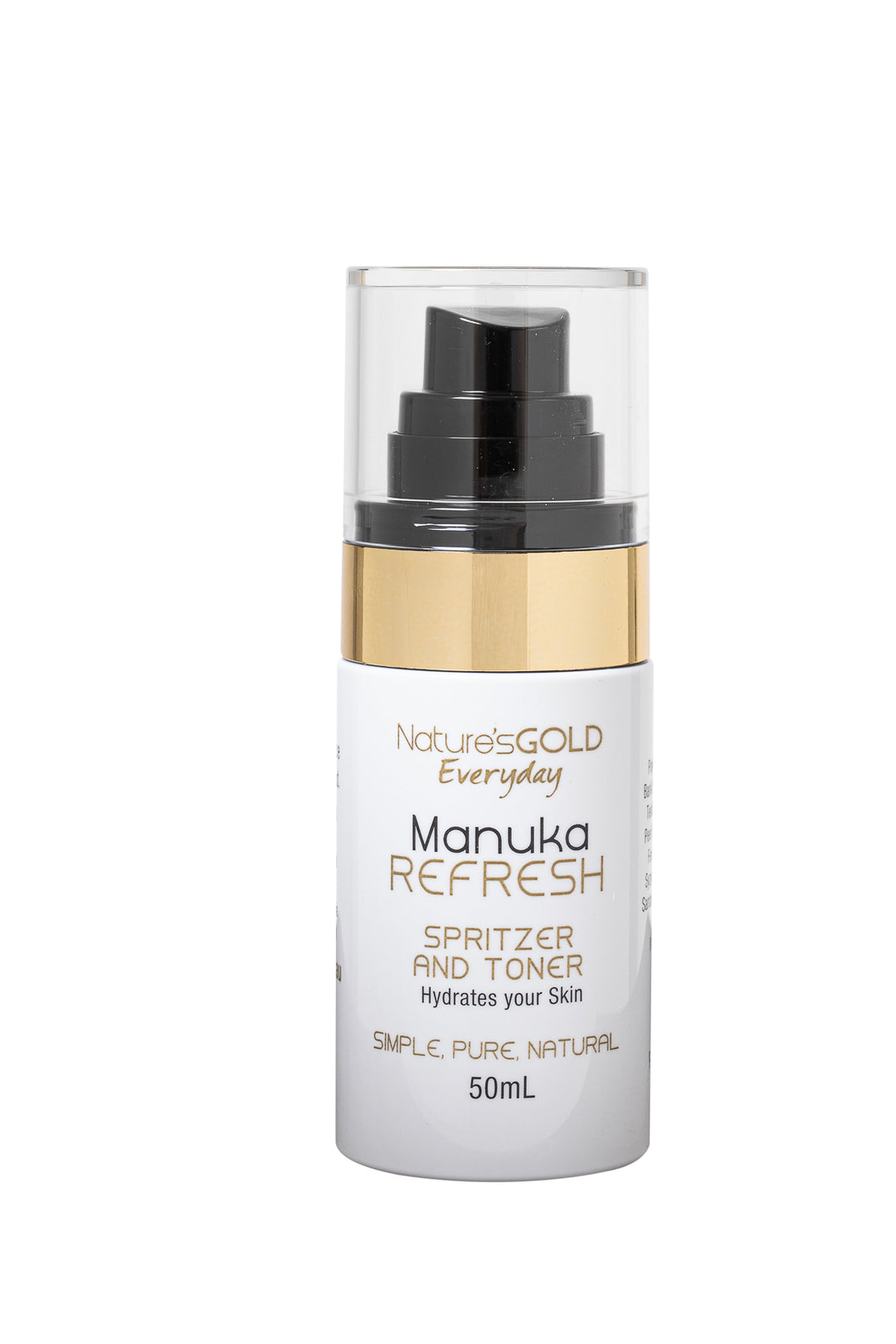



Hello C. KNapp thanks for your question.
It is fantastic that you have found Manuka Honey beneficial for external skin healing. If you’re sensitive to oligosaccharides, fructose, and fructans, and are following a low FODMAP diet, you should be cautious about consuming manuka honey.
Fructose Content: Manuka honey, like most honeys, contains a significant amount of fructose. If you’re sensitive to fructose, consuming manuka honey could potentially trigger symptoms such as bloating, gas, or abdominal discomfort.
Honey is generally considered high in FODMAPs, specifically because of its fructose content. On a low FODMAP diet, it’s typically recommended to avoid or limit honey, including manuka honey.
Individual Tolerance: Some people can tolerate small amounts of honey even on a low FODMAP diet, but this varies greatly from person to person.
Given your sensitivities, it’s likely best to avoid manuka honey or at least test a very small amount to see how your body reacts. If you decide to try it, start with a small amount and monitor your symptoms closely.
Consulting with a healthcare provider or a dietitian specialized in FODMAPs would be a good idea to ensure you’re managing your diet in the best way possible.
I follow a low fodmap diet so have not eaten honey for over 16 years. I read all the advantages of Manuka honey and have found it good at external skin healing but oligosaccharides, fructose, fructans etc are an issue for me. I do take pro-biotics. Do you have any helpful suggestions vis a vis Manuka honey for people like me? Thank you.
发表评论